
On Jan. 22, an article was published on Philly.com, the website of the Philadelphia Inquirer, with the provocative title, “Are Philly court reporters accurate with black dialect? Study: Not really.” The article is based on a study of selected sentences taped and played for the study volunteers, who were asked to transcribe them as if for court. In asking questions about the accuracy, both the article and the study reinforce the importance of the court reporter’s role in the U.S. legal system.
The following is the letter sent on behalf of the National Court Reporters Association and the Pennsylvania Court Reporters Association by NCRA President Sue Terry, FAPR, RPR, CRR, CRC, and NCRA member and Pennsylvania Court Reporters Association President Melissa Keating, RPR, to the newspaper and to the study author.
Thank you for the opportunity to comment on Cassie Owens’ article of Jan. 22, 2019, “Are Philly court reporters accurate with black dialect? Study: Not really.”
First, we appreciate the principle implicit within both Ms. Owens’ and the study’s content that court reporters are an indispensable part of the judicial process. We agree with the importance of interrupting when proceedings are not fully intelligible, as the resulting transcript imports verity to all who review it. Only a human being, charged with care of the record, is capable of instantly determining unintelligible speech and pausing the proceedings for clarification.
We support the goal of improvement within the legal system to protect the rights of those in the system. Court reporters are the last line of defense for the public against process abuse. Our absolute devotion to impartiality and accuracy is designed to ensure a reliable record for readers one day or one hundred years later.
It is from that ethical framework of impartiality and accuracy that we note possible misconceptions within the article and foundational study. This study was not live testimony where court reporters do their job. This was a study independent of their employment where taped phrases were played and they were asked to write them and then asked to paraphrase the statements on what the reporters thought the statement meant. In their jobs, court reporters do not interpret; we do not paraphrase. The very nature of our work demands that we not place our subjective judgment of what an utterance should be, or what may have been intended, over what is actually said.
In testimony that is difficult for a given listener to understand, there are options available to the court reporter and participants: 1) the reporter can interrupt to gain clarity; 2) engagement of a qualified interpreter to ensure that meaning is conveyed accurately; 3) consulting the court reporter’s realtime display of the transcript to resolve potential misunderstandings. (Only court reporters can provide such realtime displays.) We note that none of these vital options appeared to be available in the foundational study.
Protection of the measured and faithful administration of justice is the basis for court reporters’ very presence in the judicial process. Our system of jurisprudence demands that justice be blind, but justice cannot be deaf. We offer our support and expertise for opportunities that help to ensure that words spoken on the record are accurately preserved.

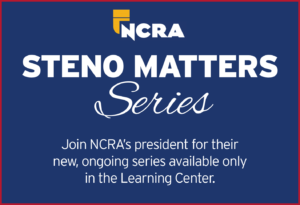
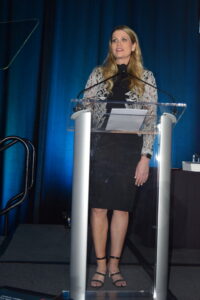
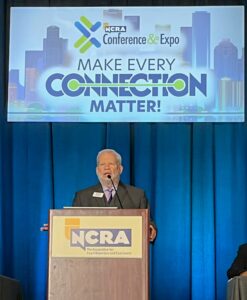
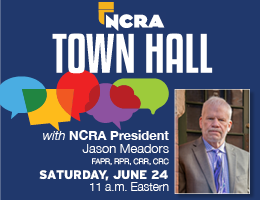
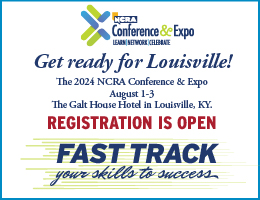
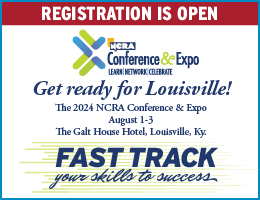


[…] the picture? Courts and lawyers! When the Testifying While Black Study hit the news, NCRA and PCRA went after the study itself, which was very similar to my own take on it. The news tore into us and we looked doomed. Then I […]